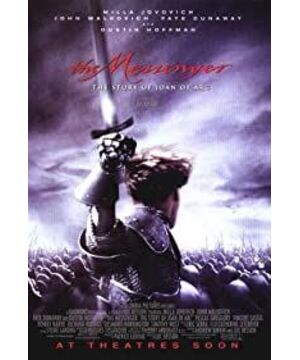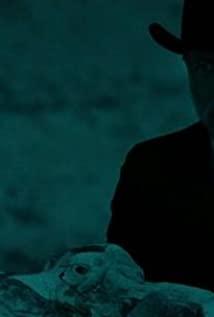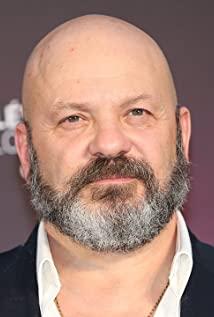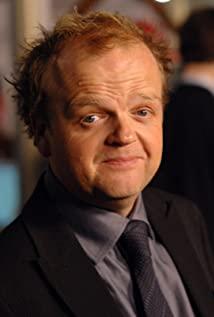The reason why I like the Mira version, Luc Besson’s version of Joan of Arc, is because it suits the taste of materialistic history lovers like me. Before this, the various versions of "Joan of Arc" movies all deified or were too feminine. For example, Ingrid Bowman's version is not like Joan at all but like the Virgin Mary.
Milla Jovovich’s Joan of Arc does not quite fit the public’s beautiful imagination of this legendary woman in history. Mila is very sharp and lacks feminine femininity. But for the specific historical image of Joan of Arc, she is undoubtedly very suitable.
Compared to Milla Jovovich's version of Joan of Arc, Lily Boszowski's version of Joan of Arc may be more romantic in appearance. But that kind of image only exists on the stage or in oil paintings. The girl who was really in the Hundred Years' War with the rude male soldiers would never be so delicate and tender.
In the movie "Joan of Arc", the Mira version can be regarded as the most materialistic and realistic version. The film greatly dilutes the influence of religion in objective reality, and truly shows the legendary deeds left by Joan in every detail and adds materialism and atheism. I personally feel that the reason why this edition of "Joan of Arc" shocks the world and arouses strong resistance is mainly because it cuts off the divinity that has been shrouded in this extremely glorious historical figure of Joan for five hundred years, and restores her to Similar to ordinary people around us. I'm afraid that the French who can't accept this point are the French who admire Joan.
Compared with the female saints praised by countless playwrights, we should accept the fact that Jeanne Dalke also has human weakness.
Because the real heroes come from ordinary people, from your side.
Not long after the beginning of the film, Joan of Arc's village was attacked by the British and set ablaze (a true historical event). The British soldier who broke through the door was resisted by Joan's sister with a sword, so there was the very famous sentence "French men are really scammers, and they let women go to war."
In fact, this sentence is what the British often said when they mocked the French for relying on the "Armagnac prostitute" (the British scornful name for Joan of Arc).
The words of Sister Joan echoed the evaluation of the French for hundreds of years of Joan's feat of bravely fending off the country as a woman-God's will!
Charles VII’s mother-in-law, Yolande of Aragon, incarnates in the film as a materialist in a highly religious era (at least she feels very like a materialist). She is far from being like a church member. Worshiping gods or gods seems to be in this woman's heart, the era of liberation from the shackles of theology has come hundreds of years in advance.
Yolande understood that the prestige of the Lord and the Church was already in jeopardy under the circumstances of France's one defeat and another defeat. At this time, the idea of the people first, the society second, and the ruler was put on the agenda. Yolande supports Charlie's meeting with the illiterate village girl, not because she believes that Joan was really sent by God to save France, but because she knows that the people believe. At this time, even if the people believed that a toad could save France, Yolande would dress the toad as a savior.
It was through Yolande that Luc Besson conveyed materialistic thought.
Yolande does not believe in the myth of Joan, but she needs others to believe. This is also a common problem faced by the Charles VII group. As long as the people believe in the myth of Joan of Arc and can mobilize morale, it will be beneficial to them. As the ruling class, Yolande cannot believe in the power of God like ordinary people, but he must use the people's heart.
Well-known prophecies in history are basically hindsight. Before the incident, I had never heard of any predictions.
In the history of Joan of Arc, there is no way to save France. After her death, the Hundred Years' War fought for another twenty years. The reason why Joan is great is that she evokes the strong national soul and patriotism of the French, which I am afraid that Joan herself did not expect.
Joland passed the virgin examination, and Yolande was overjoyed. In the religion of the time, the virgin would not be deceived by the devil, and Joan can only be a person sent by God, which is undoubtedly a booster for improving the morale of the army.
Judging from the performance of Yolande's play, the materialism of Luc Besson's "Joan of Arc" is already very strong.
Another place where Yolande showed his materialism is that after Joan of Arc liberated Orleans, when the court prepared for the coronation of Charles VII, the holy oil in the bottle specially used for the coronation evaporated over time. Bishops and other religious people can hardly explain why the holy oil has disappeared, and they don't know how they should ask God for help after the holy oil from heaven is gone.
In the eyes of these people, holy oil is something of God, and the folks will not make it. Now that the gift of God is gone, how should the coronation be held? At this time, the mighty and domineering Yolande played the role of God, and her "feat" of pouring folk oil into the holy oil bottle frightened the Pope. Yoland's inner (perhaps the director) contempt for religious theology is also evident.
Yolande performed the miracle of "Heaven dove pours God's oil into the coronation bottle" on the spot, giving his mother-in-law a big praise.
Miracle is the most commonly used word in the myth of Joan of Arc.
It even appeared in the opening title of Luc Besson's version of "Joan of Arc", which was mentioned repeatedly in the film.
Yolande is telling everyone that the so-called miracles are created by mankind's own efforts-this is tantamount to telling us that Joan of Arc has made achievements by her own charm.
Deep down in the hearts of Joan's hard-core followers, they may not believe in the myth of Joan. This restores part of the history and also shows the divinity of Luc Besson who cut off Joan of Arc.
But the most incredible thing is at the end of the film, which is also the most controversial and boldest show of Luc Besson's "Joan of Arc".
Prior to this, Joan of Arc’s sacrifices were sublimated to martyrs in film and television, documentary or literary works. The reason why Joan of Arc became a saint was because she would rather die than betray God for her faith. And die with the motherland.
Even if the whole world does not believe in the myth of Joan, we at least know that Joan herself believes.
But what is surprising is that at the end of Luc Besson’s version of Joan of Arc—
Deep down, Joan denied the voices she had heard since she was a child from "her God".
This is really the most subversive adaptation.
This is tantamount to telling us that deep down in her heart, Joan knows that the holy angels she saw and the sights and sounds that instructed her to save France were all hinted by the subconscious of her cerebral cortex, and she wanted to see it.
She knew that she was a delusionist, and everything was an illusion.
Seeing this, even those who consistently deny Joan's miracle and want to beat her back to the prototype of a crazy gambler (such as the answerer himself) are speechless. We think that at least Joan herself believes in the voices of God from her, but it may not be the case at all.
At this time, the canonized goddess turned back into a village girl who was also a man of fireworks.
She was abandoned by "her god".
This is probably the cruelest part of the story of Joan of Arc. Joan gave Charles VII to the throne, but her king abandoned her. Even if she changed history and created a turning point in the Hundred Years' War, a 19-year-old village girl who had not read a book and only had some military training (even if she was really a military strategist) would not understand politics and diplomacy, and would leave the battlefield. There is no place for Joan of Arc, she will soon withdraw from the stage of history.
Only interest between people is eternal and unchanging.
Luc Besson’s "Joan of Arc" completely shattered the last and most sacred halo of Joan. The legendary French marshal Joan of Arc, who is not protected by religious beliefs, can only collapse in the fire like a mortal.
The canonization of Joan of Arc is only mentioned in the subtitles in the film. She was named a martyred saint and saint by Pope Benedict XV on May 16, 1920, and her memorial day was set on May 30.
If the movie shows some statues of Joan of Arc in Orleans at this time, I'm afraid it will make the audience feel more relieved, but it doesn't. that is because--
The halo of the saint in later generations was meaningless to Joan of Arc at that time, and it was only because of people's respect and commemoration of national heroes. When the fire ignited, Joan's body and faith were wiped out.
God did not come.
Many famous artists praised Joan, including Voltaire, a prominent figure in the wave of European ideological emancipation. He criticized the barbarity and darkness of the Catholic Church, comparing the Pope to a " two-legged beast, " but the Catholic Joan of Arc as a hero.
The European Enlightenment movement criticized the fallacy of religious theology, promoted rationality, advocated humanism and materialism, and promoted that sovereignty rests with the people.
The reason why Joan of Arc is remembered by people other than Catholics is because she was not sent by God to save France. Joan is from the people, and her heroic slogan comes from her heart, from the deepest cry of the ordinary French people.
Related link: Yun Fei [Film Critic]
Yun Fei Literature: Fang Fei Literature
Starting Wukong
View more about The Messenger: The Story of Joan of Arc reviews











